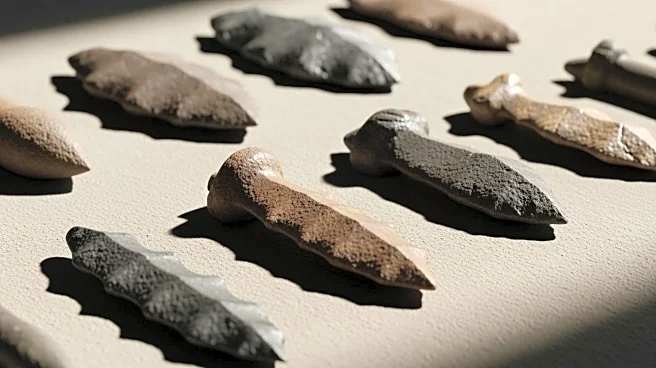What's Happening?
Archaeologists have unearthed 2.75-million-year-old stone tools in Kenya's Turkana Basin, revealing a long-standing tradition of toolmaking among early hominins. These tools, part of the Oldowan technology,
demonstrate a consistent and deliberate design that persisted through environmental changes such as wildfires and droughts. The study, published in Nature Communications, highlights the technological resilience of early humans, who refined their tools over nearly 300,000 years to adapt to changing climates.
Why It's Important?
The discovery pushes back the timeline of human technological innovation, providing insights into how early humans used technology to adapt to environmental challenges. This long-standing tradition of toolmaking suggests that early hominins possessed a cultural continuity that allowed them to survive and thrive in unstable environments. The findings underscore the role of technology in human evolution, highlighting the importance of cultural knowledge and adaptation in the face of environmental stress.











